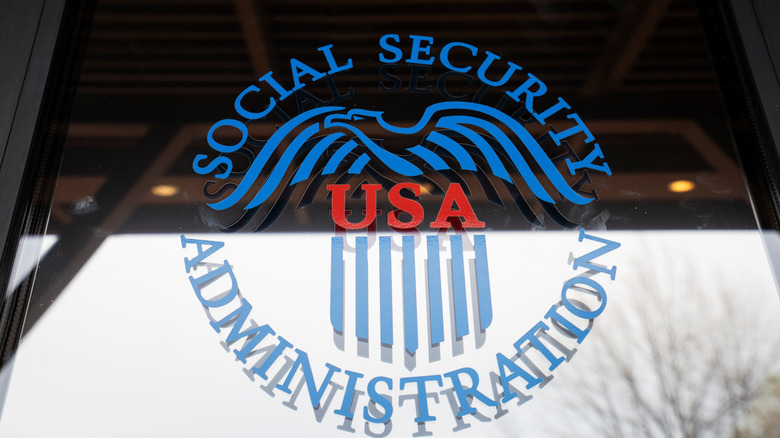Retirees Should Be Weary Of Social Security's New 2026 COLA Estimate
Retirees may see an increase in their Social Security checks in 2026, but it will more than likely not be enough to keep up with the pace of inflation — or with increased health costs. Mary Johnson, a Social Security and Medicare analyst, told CNBC that, as of September 2025, retirees are likely to receive between a 2.7% to 2.8% cost-of-living adjustment (COLA) to their benefits in 2026. This would amount to an extra $54.70 a month for the average retiree receiving about $1,995 a month in benefits.
It's worth noting that this 2.8% hike in Social Security benefits is bigger than the 2.3% Social Security COLA increase that was forecast in February. However, this is due to inflation rising. The Consumer Price Index (CPI) for all consumer items rose 2.9% in August 2025 when compared to the previous year, according to the Bureau of Labor and Statistics. In July, the CPI had risen 2.7%. Social Security checks, however, are based on the Consumer Price Index for Urban Wage Earners and Clerical Workers, also known as CPI-W, which rose 2.8% in August 2025. Ultimately, the government won't determine how big of a COLA bump senior citizens will receive until October — after the September data comes in.
COLA increase won't be enough to help seniors, advocates say
Senior advocates fear that 2026's COLA increase will ultimately not be enough to help seniors pay for rising costs across categories like food, essential household items, and healthcare. Ramsey Alwin, president of the National Council on Aging, told USA Today that COLA "doesn't reflect the true cost of aging well in America, adding that "the Medicare premium will likely eat up the little extra money they receive."
Regarding healthcare costs, insurance premiums for Medicare Part B are projected to increase by $21.50, making premiums $206.50 a month, which is the second highest premium jump in Medicare's history. Medicare Part D premiums, for prescriptions drugs, could also jump by as much as $50 a month in 2026, compared to $35 a month in 2025.
While inflation increases, the Trump administration continues to cut funding for Social Security and Medicare programs in an effort to control the national debt — and to help pay for tax breaks like new tax deductions for senior citizens. These Social Security shakeups could include delayed payments for retirees at the same time new anti-fraud policies could force retirees to travel to increasingly understaffed physical Social Security branches for services. As for Medicare recipients, with both costs and policies in flux, experts have advised retirees review their individual plans before they automatically renew, to ensure the plan still fits their budget.

